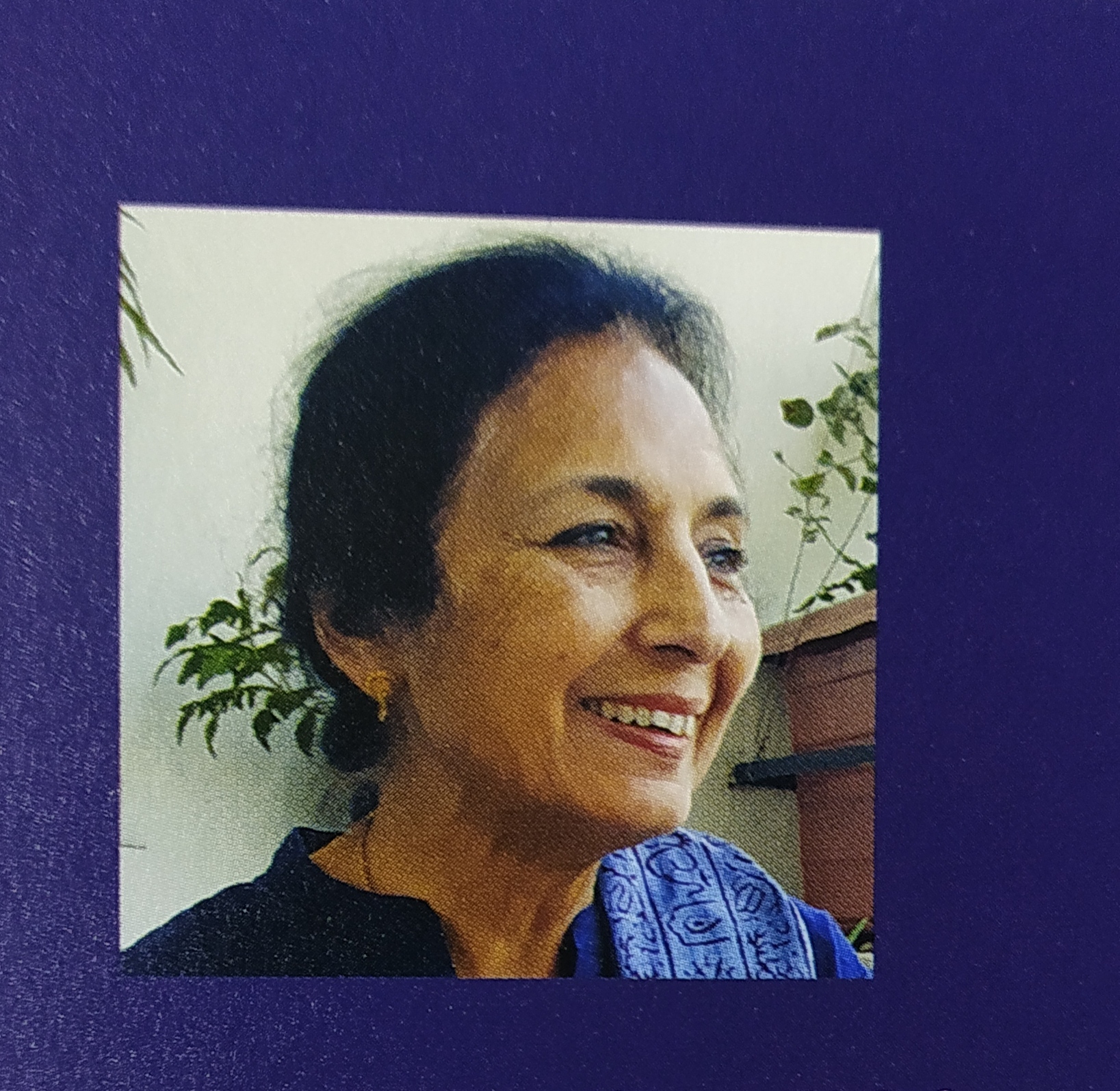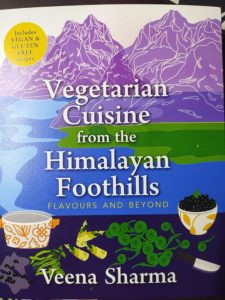Interview: Author Veena Sharma On Her New Book Vegetarian Cuisine From The Himalayan Foothills


Veena Sharma did her Ph.D. from African Studies Centre, School for International Studies, Jawaharlal Nehru University, New Delhi. A Fellow of the Indian Institute of Advanced Study, Shimla (2010–2012), she also served as Head of Swahili Service, External Services Division, All India Radio, for nearly 22 years. In that position, she was invited (during the 1980s) as a UN Fellow, to Bangkok, New York, Nairobi, and Vienna by UN Council for Namibia, UN Commission on South Africa, UN International Decade for Women, and UN Council for Namibia respectively. She has traveled to various parts of the world to teach and present papers on Leisure Studies, as also on Pilgrimage Tourism. She has, all along, had an abiding interest in Vedanta. Currently, she lives in Rishikesh, Uttarakhand.
The Kolkata Mail correspondent Priyanka Dutta caught up with the author in an exclusive chat over her new book- Vegetarian Cuisine From The Himalayan Foothills. Excerpts..
There are relatively more books on non-vegetarian cuisine than vegetarian cuisine. Why did you take the initiative to focus solely on vegetarian food?
Veena Sharma- That reason itself could call for a book that focused on vegetarian cuisine! Actually, I myself am a vegetarian and find that more and more people are either opting for a greater variety of vegetables in their food or turning to vegetarianism, even veganism – perhaps because of health or environmental reasons.
I think there are many books on vegetarian cuisine also, but this one focuses a lot on wholesome grains and pulses and many local, seasonal, vegetables which we sometimes tend to overlook, even forget. Also, there is so much variety in vegetarian food that it becomes worthwhile exploring it and adding it to our day-to-day fare. Food is something that need never be boring. The act of cooking provides us with an opportunity to create ever new dishes and experiment with flavors. And we can suit it to our individual preferences.
How challenging was it to look for forgotten or less used grains and greens for writing the book?
Veena Sharma- Here, in Rishikesh, one finds a great variety of grains and greens without necessarily having to search too much. One just needs to look. In fact, that is what encouraged me to try and explore.
You moved to Rishikesh. How has this decision influenced your writing of the book?
Veena Sharma- It was not so much a conscious decision. It just organically took shape out of what I tended to note down from time to time, and my curiosity to try new ingredients, and explore those which would lead to better health, better physical/mental performance. That is what made me realize that while we seem to be generally aware of macronutrients – the big foods representing proteins, carbohydrates, etc. – we ignore the vital micro-nutrients present in the amazing greens and grains that are abundantly available. It is the micronutrients that help the highly sophisticated refinery inside our bodies to break down solids into the subtlest of nutrients that reach the trillions of microcells and neurons that make up our bodies and brains.
Different fruits and vegetables are available in different seasons in our country. How important do you think is it to incorporate these foods into our daily diet?
Veena Sharma- Traditionally we were advised to consume that which is in season, and even that which grows in the vicinity of where we live. For, nature provides us the right foods in the right seasons so that our bodies may stay fit. Unfortunately, metropolitan living and a fashionable craze for reaching out to that which seems exotic or is obtained out of season have made us forget that basic good sense. Seasonal produce is what our bodies need and look out for, it also connects us to Nature.
What kind of dishes do you look to cook? Do you like to cook simple or complicated dishes?
Veena Sharma- I like to cook very simply. As I have mentioned in the book, I do not like to spend hours in the kitchen, though I like the food put out on the table to be tasty and nourishing. That is why the recipes in the book are very easy. And once one tries them with all the measurements etc. one may just use approximations the next time on and create one’s own.
The recipes in the book are simple yet attractive and can be attempted even by amateur chefs. Did you deliberately select simple recipes so that a wider audience could actually try them out?
Veena Sharma- The idea is to encourage people to look out for and explore that which is around them. I, too, am an amateur cook, so that is what I present in the book.
The book contains home remedies too. How important is it to have knowledge about home remedies in times of the global pandemic?
Veena Sharma- I personally think that it is because of the Indian temperament, which likes to try home remedies, that our numbers have remained contained. Everyone uses some concoction or other which they believe would strengthen their immunity!
How much time did you take for the research purpose?
Veena Sharma- As I said it just grew organically and was a joyful exercise. Actually, it didn’t take much time.
What is next in line for you?
Veena Sharma– I have been a student of Vedanta. Currently, I am engaged with studying some texts. Though, I would like to try and put together a book showcasing sacred foods prepared in different parts of this area, or even beyond the area, during festival and ritual times.
A must-have book for food lovers!!
